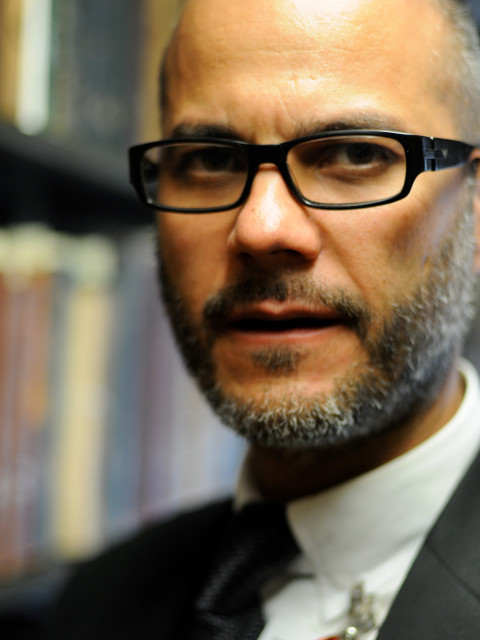
BIPOC Mental Health Awareness Month
by MarkAlain Déry, DO, MPH, FACOI
Infectious Disease Specialist
July 16, 2021
While the pandemic endures, together with the ACOI, I am going to continue to update you on COVID-19 news, but I will be covering COVID less frequently during these videos going forward so that we can intersperse other topics to keep you up-to -date on the relevant issues of the day as seen through the lens of osteopathic health and providing Principle-Centered care to our patients.
This month we’re focusing on July being Minority Mental Health Awareness Month. We've got an update about the COVID-19 vaccine too!
BIPOC Mental Health Awareness Month
In July we put our focus on mental health awareness for BIPOC individuals. As we all know regardless of the color of our skin, we all have the potential to suffer from mental health challenges. If you are not familiar with the term BIPOC, it has replaced the word minority to refer to Black, Indigenous, (and other) People of Color.
Unfortunately, communities of color face more of a struggle getting help for mental health issues. Typically, there is less access to care, cultural stigma, and lower quality care. According to the US Department of Health and Human Services Office of Minority Health in 2019, suicide was the second leading cause of death for Black Americans ages 15 to 24.
As osteopathic healthcare providers guided by Principle-Centered Medicine™, we are compelled to support anyone who needs mental health assistance since we all know that physical health starts with good mental health.
To shed some light on this awareness and the origin of Bebe Moore Campbell BIPOC Mental Health Awareness month, let me give you a brief history on who Bebe Moore Campbell was. She was an author, a teacher, and a journalist. She was also a mother. Her daughter battled mental illness and it was her struggles that motivated Bebe Moore Campbell to become a mental health advocate. She is known for creating a safe space for Black people to talk about their mental health concerns and her work has led to Congress formally recognizing the Bebe Moore Campbell National Minority Mental Health Awareness Month in 2008 to help bring awareness to the unique challenges that underrepresented groups face.
What has been discovered over the years is that not only are people of color limited in their access to effective mental health care, but they are also subject to discrimination. The disadvantages that many BIPOC individuals face are often not seen by white individuals. We all know that everyday racism creates a cycle of microaggressions which can cause anxiety, psychological distress, depression, and even suicidal thoughts in people of color. As providers our job is to be sensitive to these conditions and not succumb to the racial biases that create skepticism toward people of color in need of psychological help.
Unfortunately a common opinion persists that people of color are “overly sensitive” in regard to racialized issues. When individuals seek support, they are often dismissed. Facing racial bias – whether it is in law enforcement or in the physician’s office - can be a toll too much to bear and can lead to emotional breakdowns which can manifest into anger, substance abuse, or reckless behavior.
For us as providers this is about doing the right thing and about why medical ethics are important. Deep listening and addressing complexity are part of what we do as Osteopathic internists.
COVID Vaccine update
Now I want to provide a quick COVID vaccine update! It is hard to believe that we are in still in a pandemic and somehow we have more vaccine than we have people who want to take it. Now a new vaccine is about to be available.
The Novavax vaccine uses more traditional vaccine technology and perhaps could help those hesitant to take the newer MRNA vaccines to actually take this new shot. I spoke to Vice Magazine about what makes the Novavax different from the Pfizer or Moderna vaccines.
As we’ve discussed on this vlog before, the MRNA vaccines give your body the instructions on what to do in case it detects the Coronavirus Spike protein. Those instructions help our immune system to fight it. The Novavax is a subunit vaccine, and it is the same vaccine approach that we’ve taken since 1986 with hepatitis B, pertussis, and the flu vaccines. Another big plus is that it does not need to be stored at the same freezing temperatures that the other ones do, making global distribution much easier.
People who shun the MRNA vaccines because they were developed too quickly may be more open to taking the Novavax. It also has fewer immediate side effects, another factor that scared people away from the Pfizer and Moderna vaccines. While the J&J was an alternative to the MRNA vaccine, the scare early on about blood clots turned some away from that vaccine. There is hope that those individuals will now be more open to the Novavax shot.
More good news - it’s effective! It is about 96% effective in Phase 1 trials, which is slightly more effective than both the Pfizer and Moderna were in Phase 3 trials! Plus it is works against the variants – including the Delta variant. Unfortunately, it will likely not be available until late September.
While it may not make much of a dent here in the US, it may globally and that could be the key to keeping more variants developing in unvaccinated populations across the world.
Sources:
- July 2021 is National Minority Mental Health Month - Interim, Inc. (interiminc.org)
- Mental and Behavioral Health - African Americans - The Office of Minority Health (hhs.gov)
- People of Color and Mental Health Care: The Double Bind | Psychology Today Canada
- Everything You Need to Know About Novavax, the New COVID Vaccine (vice.com)

